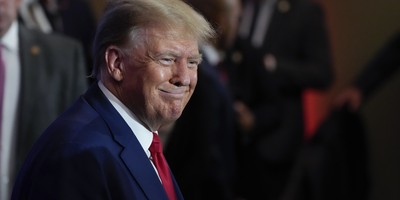In late February, the United States Supreme Court will consider a case that invokes American history, constitutional meaning, and the realities of present-day voting in a large portion of our nation. Shelby County, Alabama has challenged the proper scope of key enforcement provisions of the Voting Rights Act – and though pundits are making this case racially charged, it is far more a question of the power of federal versus state governments under the Constitution.
Shelby County, Alabama is a bustling suburban county near Birmingham. It’s a remarkable, growing community, like thousands of similar communities all across America.
Yet Shelby County, like hundreds of jurisdictions across the so-called “Old South,” remains under strict and costly supervision by both the federal courts and the U.S. Department of Justice. The enactment of the Voting Rights Act in the early 1960s, which was designed to remedy instances of voter intimidation held over from the Jim Crowe era, empowered federal authorities to strike down the repugnant and unconstitutional tactics of a bygone era.
One of the key elements of the enforcement is that any changes to voting districts and election law must be submitted for thorough review and approval by the Justice Department and the courts. The record of success, at least in terms of eliminating instances of illegal behavior, is unquestioned.
Fast forward to the 21st century, and evidence of ongoing discrimination is nearly non-existent in the so-called “covered” jurisdictions. This is not personal opinion; no evidence of a systematic attempt to intimidate or suppress voting was presented to Congress when it was considering reauthorizing Sections 4(b) and 5 of the Voting Rights Act in 2006. Yet Congress reauthorized the preclearance and enforcement provisions for an additional 25 years, leaving hundreds of communities and, indeed, entire states under Justice Department and federal court authority.
Recommended
The expensive hoop-jumping required to comply with this kind of scrutiny has rightly raised the ire of many jurisdictions, and not just because it’s burdensome in the face of no provable ongoing discrimination. Rather, the far-ranging power and authority granted to the Justice Department and federal courts in this area is a constitutional threat to state sovereign authority and ability to make necessary changes to election laws in the states.
In 2006, when Congress reauthorized parts of the Voting Rights Act for another quarter century, there were 870 black elected officials in Alabama. In many respects, to say that the various governments in the South – local and state – currently maintain discriminatory voting practices is to say that minorities in powerful elected offices are part of the group doing the discriminating.
By contrast, as the attorneys for Shelby County have argued, if the desire is to mandate preclearance on jurisdictions where there is actual evidence of voter problems, states like New York, Illinois and Tennessee would have been covered. They are not.
As we argued before the United States Supreme Court in the similar 2009 NW Austin Municipal Utility District No. 1 v. Holder case, “the lack of current evidence of intentional discrimination with respect to voting [meant that Section 5 of the Voting Rights Act] could no longer be justified as an appropriate mechanism for enforcement of the Fifteenth Amendment.”
As we now argue before the Supreme Court in the Shelby County appeal, Congress found in 2006 that first generation barriers to voting had been virtually eliminated. Therefore, relying on a speculative, non-evidence-based formula to determine whether states should be covered is arbitrary “reverse-engineering” that exceeds Congress’ authority and violates the Constitution.
The “final stand” argument for most such defenses of excessive federal authority, as in this case, is that federal authority is an effective deterrent to bad behavior (despite the willingness of the federal courts to hear civil rights cases, as in the rest of the nation). The high court will decide to what extent that “deterrence” does damage to the rest of the Constitution.
























Join the conversation as a VIP Member